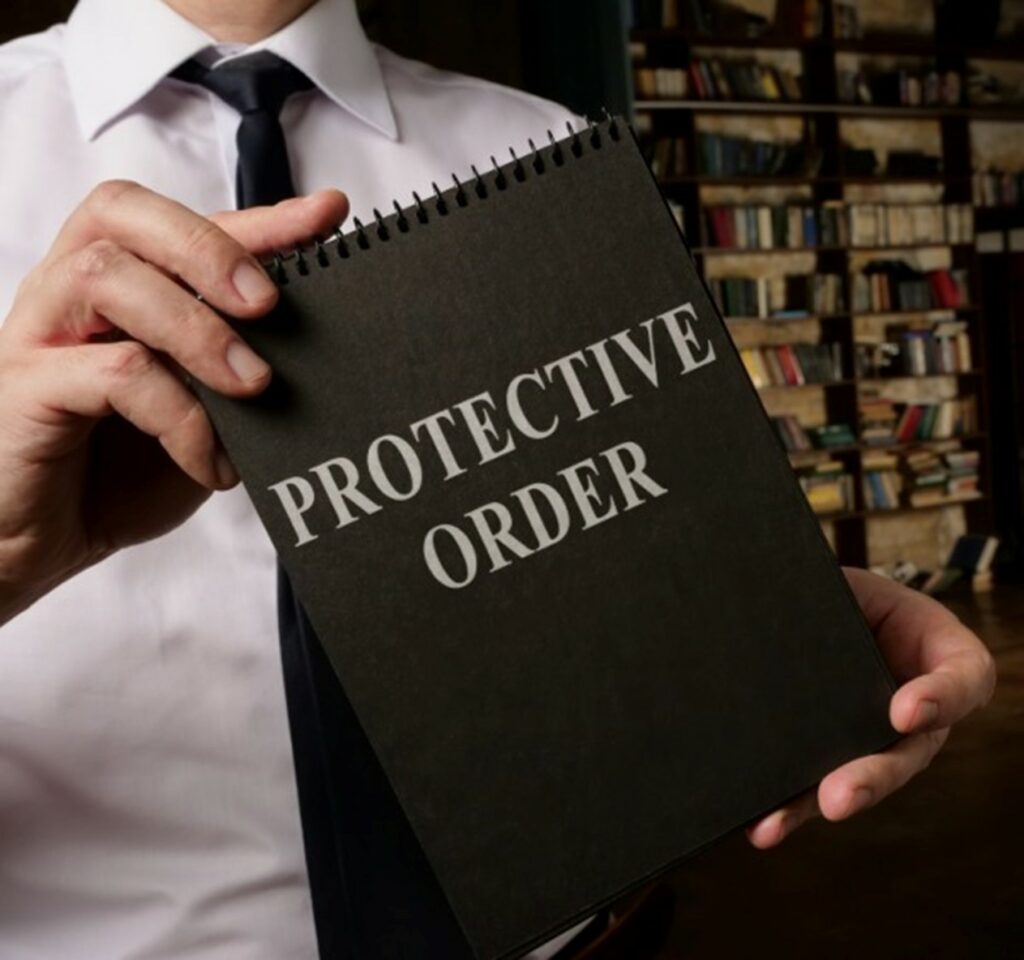Defense of Protective Orders
Protective orders are powerful legal tools designed to safeguard individuals from harm. They serve to establish boundaries when a person’s safety is at risk, often in cases involving domestic violence or harassment. Being served a protective order can be a complex and intimidating situation. This is where the expertise of Dixon & Moseley, P.C. can help.
Our firm offers dedicated legal defense for those facing protective orders, ensuring clients in the Indianapolis, IN area receive personalized support. A protective order filed against you can significantly affect your livelihood. Secure skilled legal representation from Dixon & Moseley, P.C. today to appeal the order of protection and secure the best outcome.

What exactly is a protective order? In Indiana, protective orders – also known as restraining orders – play a crucial role in ensuring safety for individuals experiencing threats or harm. Governed by the Indiana Civil Protection Act, protective orders are issued by civil courts to restrict contact between the person seeking protection, known as the petitioner, and the individual presenting a danger, referred to as the respondent.
Typically, the respondent must be someone closely connected to the petitioner, such as a family or household member. This can include spouses, former partners, or individuals with whom the petitioner has shared a significant relationship, like a child or guardianship. Common types of behavior that may lead to a protective order include:
Courts carefully evaluate the evidence presented to determine if a protective order is necessary. It is essential for petitioners to understand their rights and the process involved. Seeking legal guidance can provide clarity and support throughout these proceedings, ensuring their safety and well-being remain the top priority.

Filing for a protective order in Indiana involves several steps essential for securing safety. When a petitioner decides to file, a judge can either hold a hearing or issue an order without one, known as an ex parte order. Hearings are typically required in specific situations. For example, if the petition only alleges harassment or concerns parenting arrangements, a hearing may be necessary.
Judges can recommend standard protective orders using established forms. However, they can tailor orders to reflect a case’s unique circumstances. Customizing an order may also require a hearing within 30 days. A hearing is essential if the order involves eviction from a home, possession of shared property, or other substantial adjustments like child support or issuing fees for legal and living expenses. Courts also must hold hearings in cases that involve firearm restrictions or require respondents to surrender weapons.
When facing a protective order in Indiana, there are important steps to defend your rights. Start by carefully reading the protective order to understand its terms and conditions. It is vital to follow these conditions closely to avoid further legal complications.
Next, seek the counsel of a skilled criminal defense attorney who can provide essential guidance and formulate a solid defense for your case. Gather any evidence that supports your position, including documents or witness statements. You should also request a copy of the petitioner’s affidavit for your records and prepare yourself adequately for an appeal hearing.
Many wonder, “Do you have to go to court for a restraining order?” In most cases, a court hearing will be necessary to address the details of the protective order, so it’s beneficial to have an experienced defense attorney represent you.
In Indiana, respondents may have opportunities to challenge a protective order and seek its dismissal. Several conditions could justify such a motion. Common grounds for dismissal include:
To pursue this route effectively, the respondent or their attorney must gather compelling evidence supporting the motion. This can include police records, witness statements, or relevant medical documents. Once evidence is collected, the motion to dismiss must be filed with the court. A hearing may then be scheduled, allowing both parties to present their respective arguments.
If you find yourself dealing with a protective order, it’s important to act swiftly. Consulting an experienced attorney for restraining order situations can make a significant difference in protecting your rights. Dixon & Moseley, P.C. is here to provide dedicated legal support for your case. We understand the complexities of protective orders and will work closely with you to ensure the best outcome. Don’t hesitate – contact us and discuss your legal options today.
[wpbr_collection id=”154″]
Please fill out the form below and we will be in touch with you shortly.

Call Now



Copyright © 2025 Dixon & Moseley, P.C., Attorneys at Law. All rights reserved. This Site does not provide legal advice; please review the disclaimer for other limitations. Privacy Policy
Based in Indianapolis and founded in 1995, Dixon & Moseley, P.C. is a niche law firm focused on successfully dealing with the complexities of divorce, high-conflict child custody and family law. Known for their ability to solve extremely complex situations with high quality work and responsiveness, Dixon & Moseley, P.C. will guide you every step of the way. The family law attorneys at Dixon & Moseley, P.C. will help you precisely identify your objectives and the means to reach your desired result. Life is uncertain. Be certain of your counsel. Indianapolis Divorce Attorneys, Dixon & Moseley, P.C.
Indianapolis Divorce Attorneys, Dixon & Moseley, P.C. of Indianapolis, Indiana, offers legal services for Indianapolis, Zionsville, Noblesville, Carmel, Avon, Anderson, Danville, Greenwood, Brownsburg, Geist, Fortville, McCordsville, Muncie, Greenfield, Westfield, Fort Wayne, Fishers, Bloomington, Lafayette, Marion County, Hamilton County, Hendricks County, Allen County, Delaware County, Morgan County, Hendricks County, Boone County, Vigo County, Johnson County, Hancock County, and Tippecanoe County, Indiana.